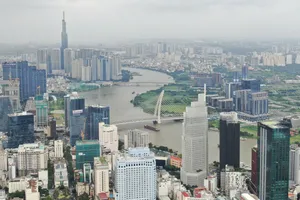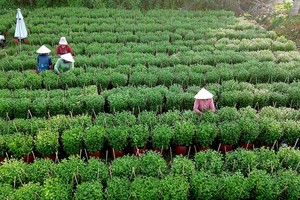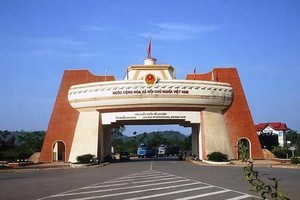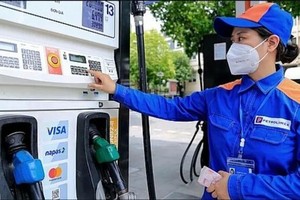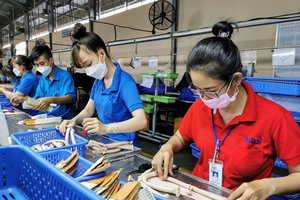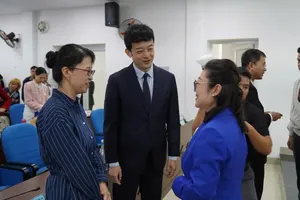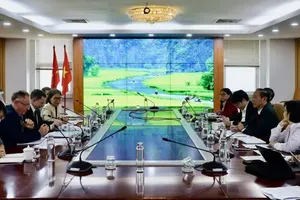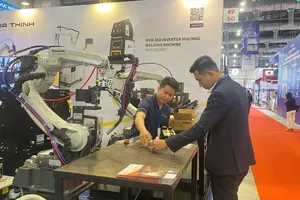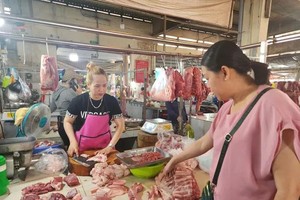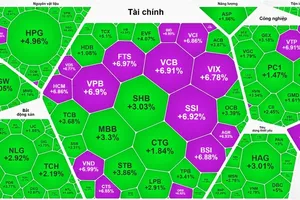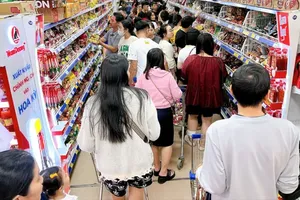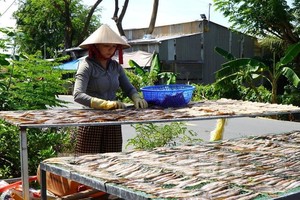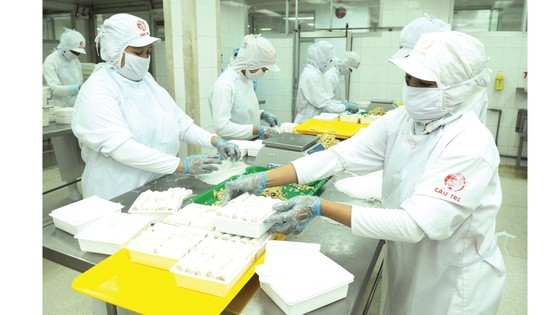
Following this flow, merger and acquisition deals have become more vibrant in Vietnam.
According to the Ministry of Planning and Investment, by the end of April this year, total foreign direct investment into Vietnam has risen to $12.3 billion. Singapore led the list of investors with an investment of nearly $4.3 billion, accounting for 62.9 percent. Taiwan (China) followed with $646 million, accounting for 9.5 percent. China came in third with $507 million, accounting for 7.5 percent, tailed by South Korea, Japan, other countries in the ASEAN, Europe, and the US.
Although the Covid-19 pandemic has been developing complicatedly worldwide, Vietnam is still the destination that receives much attention from FDI enterprises. Ms. Banjongjitt Angsusingh, Director of the Department of International Trade Promotion under the Ministry of Commerce of Thailand, said that over the past time, there were around 200 Thai enterprises seeking to invest in Vietnam.
The fields that attracted this country's enterprises are food and foodstuff processing, consumer goods, and household electricity. Also according to a survey on 122 Japanese enterprises in early-February, 62.7 percent of them said they would move out of China; 42.3 percent said the destination would be Vietnam, 20.6 percent chose Thailand, 18.6 percent chose the Philippines, and 16.5 percent chose Indonesia.
The 'China plus one' policy has been mentioned by many investors in the past few years. However, since the beginning of this year when the rapid outbreak of the Covid-19 has made a series of supply chains of electronics, and spare parts of automobiles and motorbikes broken, the wave of investment shift out of China has strengthened. Of which, the ASEAN and especially Vietnam are considered safe and attractive destinations for investment.
According to the Ministry of Planning and Investment, in comparison with the first four months of last year, investment attraction saw a certain decrease level. However, amid the context of complicated developments of the Covid-19 pandemic, the country still attracted a large number of investors, showing that the country’s investment environment is attractive. It is forecast that with the current good control on the disease, total foreign investment into Vietnam by the end of this year will reach $38 billion.
The strong shift of capital flows from many countries also made the sectors of investment more diverse. Up to now, electricity generation and distribution was the leading sector, accounting for 47.5 percent of total registered investment capital. Next was the processing and manufacturing industry, wholesale and retail, and real estate.
From another perspective, many foreign investors have chosen a shortcut to enter the Vietnamese market through M&A, buying back Vietnamese enterprises that already have a large market share in the domestic market. Lately, the representative of Thailand’s Stark Corporation announced that it had successfully bought 100 percent stakes of Thinh Phat Electric Cable Joint Stock Company and Dong Viet Non-Ferrous Metal and Plastic Joint Stock Company (Dovina). The total value of this M&A deal was up to $240 million.
Earlier, many foreign corporations also bought several famous Vietnamese brands, such as Saigon Beer, Binh Minh Plastic Joint Stock Company, Tien Phong Plastic Joint Stock Company, Cau Tre Export Goods Processing Joint Stock Company, and Nguyen Kim Shopping Center.
According to the Ministry of Planning and Investment, by the end of April this year, total foreign direct investment into Vietnam has risen to $12.3 billion. Singapore led the list of investors with an investment of nearly $4.3 billion, accounting for 62.9 percent. Taiwan (China) followed with $646 million, accounting for 9.5 percent. China came in third with $507 million, accounting for 7.5 percent, tailed by South Korea, Japan, other countries in the ASEAN, Europe, and the US.
Although the Covid-19 pandemic has been developing complicatedly worldwide, Vietnam is still the destination that receives much attention from FDI enterprises. Ms. Banjongjitt Angsusingh, Director of the Department of International Trade Promotion under the Ministry of Commerce of Thailand, said that over the past time, there were around 200 Thai enterprises seeking to invest in Vietnam.
The fields that attracted this country's enterprises are food and foodstuff processing, consumer goods, and household electricity. Also according to a survey on 122 Japanese enterprises in early-February, 62.7 percent of them said they would move out of China; 42.3 percent said the destination would be Vietnam, 20.6 percent chose Thailand, 18.6 percent chose the Philippines, and 16.5 percent chose Indonesia.
The 'China plus one' policy has been mentioned by many investors in the past few years. However, since the beginning of this year when the rapid outbreak of the Covid-19 has made a series of supply chains of electronics, and spare parts of automobiles and motorbikes broken, the wave of investment shift out of China has strengthened. Of which, the ASEAN and especially Vietnam are considered safe and attractive destinations for investment.
According to the Ministry of Planning and Investment, in comparison with the first four months of last year, investment attraction saw a certain decrease level. However, amid the context of complicated developments of the Covid-19 pandemic, the country still attracted a large number of investors, showing that the country’s investment environment is attractive. It is forecast that with the current good control on the disease, total foreign investment into Vietnam by the end of this year will reach $38 billion.
The strong shift of capital flows from many countries also made the sectors of investment more diverse. Up to now, electricity generation and distribution was the leading sector, accounting for 47.5 percent of total registered investment capital. Next was the processing and manufacturing industry, wholesale and retail, and real estate.
From another perspective, many foreign investors have chosen a shortcut to enter the Vietnamese market through M&A, buying back Vietnamese enterprises that already have a large market share in the domestic market. Lately, the representative of Thailand’s Stark Corporation announced that it had successfully bought 100 percent stakes of Thinh Phat Electric Cable Joint Stock Company and Dong Viet Non-Ferrous Metal and Plastic Joint Stock Company (Dovina). The total value of this M&A deal was up to $240 million.
Earlier, many foreign corporations also bought several famous Vietnamese brands, such as Saigon Beer, Binh Minh Plastic Joint Stock Company, Tien Phong Plastic Joint Stock Company, Cau Tre Export Goods Processing Joint Stock Company, and Nguyen Kim Shopping Center.
Many Japanese businesses see Vietnam as a potential market and a favorable destination for investment activities thanks to a stable political situation, simplified administrative procedures, improved infrastructure, and an abundance of skilled labor.
